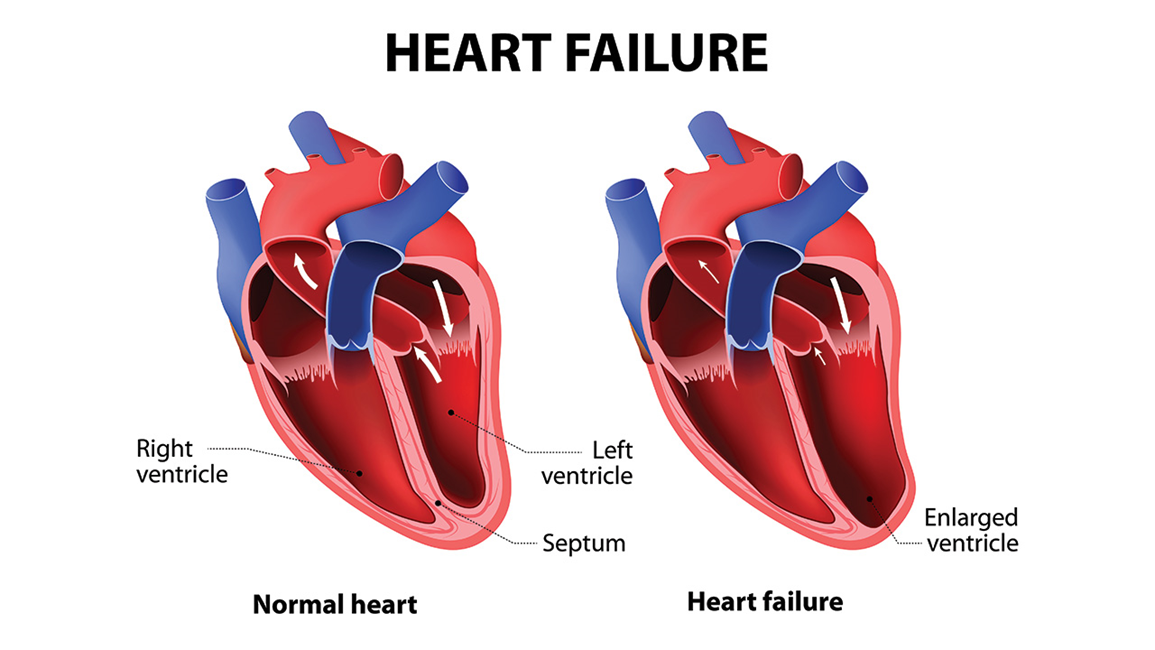A nurse is assessing a client who has restrictive cardiomyopathy (RCM). Which of the following statements should the nurse cue in the client?
Thickening of the walls of the ventricles.
Stretching of the ventricles.
Thickening of the ventricular walls and septum.
When the ventricular tissue becomes fibrous and fatty.
The Correct Answer is D
Choice A reason:
Thickening of the walls of the ventricles is not typically associated with restrictive cardiomyopathy (RCM). This condition is more characteristic of hypertrophic cardiomyopathy (HCM), where the heart muscle becomes abnormally thick, making it harder for the heart to pump blood. In RCM, the walls of the ventricles are usually not thickened but become rigid due to fibrosis or infiltration, which restricts the heart’s ability to fill with blood during diastole.
Choice B reason:
Stretching of the ventricles is more commonly seen in dilated cardiomyopathy (DCM), not restrictive cardiomyopathy. In DCM, the heart’s ventricles become enlarged and weakened, which impairs the heart’s ability to pump blood efficiently. RCM, on the other hand, involves stiffening of the ventricular walls without significant dilation.
Choice C reason:
Thickening of the ventricular walls and septum is a hallmark of hypertrophic cardiomyopathy (HCM), not restrictive cardiomyopathy. In HCM, the thickened walls can obstruct blood flow and lead to various complications. RCM is characterized by the stiffening of the ventricular walls due to fibrosis or infiltration, which restricts diastolic filling.
Choice D reason:
When the ventricular tissue becomes fibrous and fatty is the correct description of restrictive cardiomyopathy (RCM). In RCM, the heart’s ventricles become stiff and less elastic due to fibrosis (scarring) or infiltration by abnormal substances, such as amyloid proteins. This rigidity impairs the heart’s ability to fill properly during diastole, leading to symptoms of heart failure
Nursing Test Bank
Naxlex Comprehensive Predictor Exams
Related Questions
Correct Answer is A
Explanation
Choice A: Dietary and Fluid Restrictions
Dietary and fluid restrictions are crucial for patients with heart failure. These restrictions help manage symptoms and prevent complications. Limiting sodium intake can reduce fluid retention, which decreases the workload on the heart. Fluid restrictions help prevent fluid overload, which can lead to worsening heart failure symptoms. Patients are often advised to monitor their weight daily to detect fluid retention early. This choice is essential for managing heart failure effectively.

Choice B: Encouraging Increased Mobility
While physical activity is generally beneficial for overall health, it must be approached cautiously in patients with heart failure. Encouraging increased mobility without proper medical guidance can lead to overexertion and exacerbate heart failure symptoms. Exercise programs for heart failure patients should be tailored and supervised by healthcare professionals to ensure safety and effectiveness. Therefore, this choice is not as immediately critical as dietary and fluid restrictions.
Choice C: Cessation of Hormonal Supplements
Hormonal supplements can have various effects on the cardiovascular system, but their cessation is not a standard recommendation for all heart failure patients. The impact of hormonal supplements depends on the specific type and the patient’s overall health condition. This choice is less relevant compared to dietary and fluid restrictions, which have a direct and significant impact on heart failure management.
Choice D: Cessation of Intravenous (IV) Drug Use
Cessation of intravenous drug use is important for overall health and preventing infections, but it is not specific to heart failure management. While IV drug use can lead to complications that may affect the heart, it is not a primary lifestyle modification recommended for heart failure patients. The focus should be on managing fluid balance and dietary intake
Correct Answer is D
Explanation
Choice A reason:
Thickening of the walls of the ventricles is not typically associated with restrictive cardiomyopathy (RCM). This condition is more characteristic of hypertrophic cardiomyopathy (HCM), where the heart muscle becomes abnormally thick, making it harder for the heart to pump blood. In RCM, the walls of the ventricles are usually not thickened but become rigid due to fibrosis or infiltration, which restricts the heart’s ability to fill with blood during diastole.
Choice B reason:
Stretching of the ventricles is more commonly seen in dilated cardiomyopathy (DCM), not restrictive cardiomyopathy. In DCM, the heart’s ventricles become enlarged and weakened, which impairs the heart’s ability to pump blood efficiently. RCM, on the other hand, involves stiffening of the ventricular walls without significant dilation.
Choice C reason:
Thickening of the ventricular walls and septum is a hallmark of hypertrophic cardiomyopathy (HCM), not restrictive cardiomyopathy. In HCM, the thickened walls can obstruct blood flow and lead to various complications. RCM is characterized by the stiffening of the ventricular walls due to fibrosis or infiltration, which restricts diastolic filling.
Choice D reason:
When the ventricular tissue becomes fibrous and fatty is the correct description of restrictive cardiomyopathy (RCM). In RCM, the heart’s ventricles become stiff and less elastic due to fibrosis (scarring) or infiltration by abnormal substances, such as amyloid proteins. This rigidity impairs the heart’s ability to fill properly during diastole, leading to symptoms of heart failure
Whether you are a student looking to ace your exams or a practicing nurse seeking to enhance your expertise , our nursing education contents will empower you with the confidence and competence to make a difference in the lives of patients and become a respected leader in the healthcare field.
Visit Naxlex, invest in your future and unlock endless possibilities with our unparalleled nursing education contents today
Report Wrong Answer on the Current Question
Do you disagree with the answer? If yes, what is your expected answer? Explain.
Kindly be descriptive with the issue you are facing.
